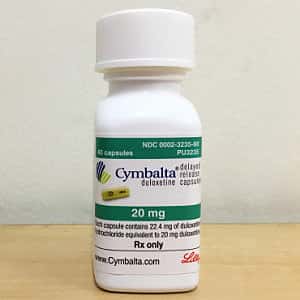
Whenever a doctor writes a prescription, a savvy patient will ask about stopping it: when should you stop taking it? What is the best approach for discontinuing? The physician should warn that Cymbalta withdrawal can be exceptionally challenging. It may require extremely gradual dose reduction over many months.
One Reader’s Cymbalta Experience:
Q. I’ve been on Cymbalta for six years. My rheumatologist prescribed it for fibromyalgia neuropathy in my feet. (It felt like my feet were in a bonfire all the time.)
When I first began taking it, the pain stopped. But I developed depression and high blood pressure and gained a lot of weight.
Last October my husband lost his job. The Cymbalta was going to be nearly $600 a month. Since my liver enzymes were high, I decided to wash out of it.
It took three weeks to taper from 120 mg to nothing. The withdrawal produced “brain zaps” and violent outbursts in which I hit my beloved husband of 20 years, threw things and terrorized the dogs. I hit myself until I got bruises. My husband hid our guns and my medications because of the suicidal threats I made. I can’t sleep and the pain from the fibro is worse than ever.
Will this ever stop? I feel like I’m at the Hotel California, where “You can check out any time you like, but you can never leave!”
Troubles with Cymbalta Withdrawal:
A. Cymbalta is prescribed for depression, anxiety, nerve and muscle pain as well as fibromyalgia. Patients are not always told when they start this medication that stopping it can be challenging.
We have heard from hundreds of people that the symptoms of withdrawing from duloxetine (Cymbalta), desvenlafaxine (Pristiq), escitalopram (Lexapro), venlafaxine (Effexor) and similar drugs include electric shock-like sensations (brain zaps), dizziness, anxiety, irritability and hostility, digestive difficulties and nerve tingling.
Although the symptoms can last for weeks, they usually fade. We are sending you our Guide to Dealing with Depression, which discusses withdrawal and provides some non-drug alternatives for depression.

